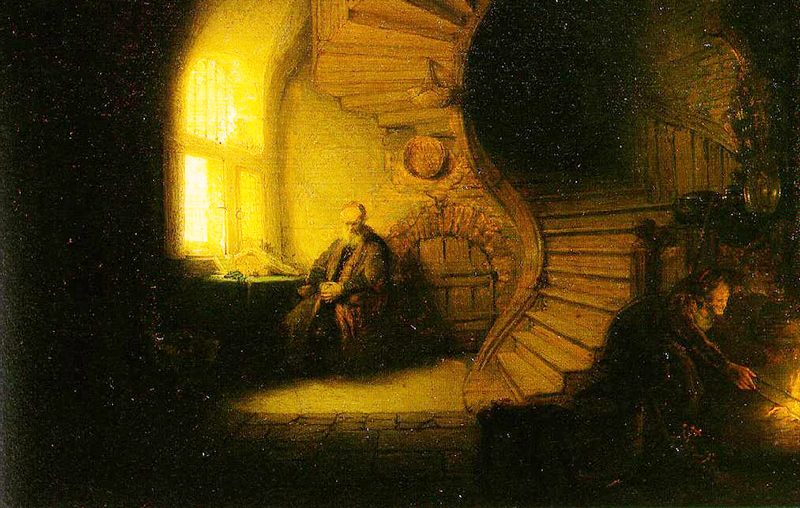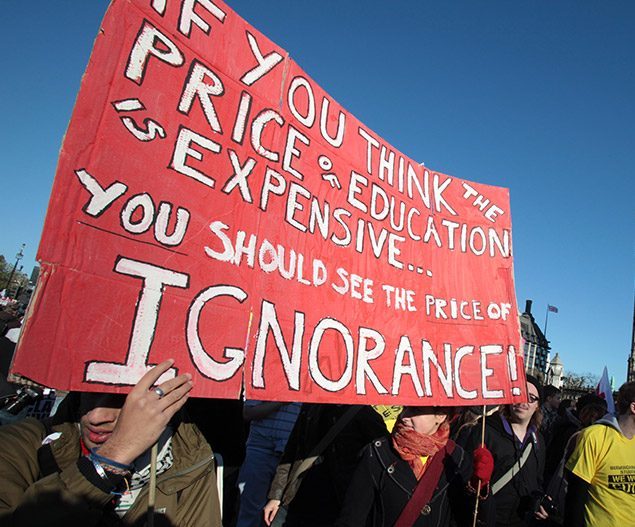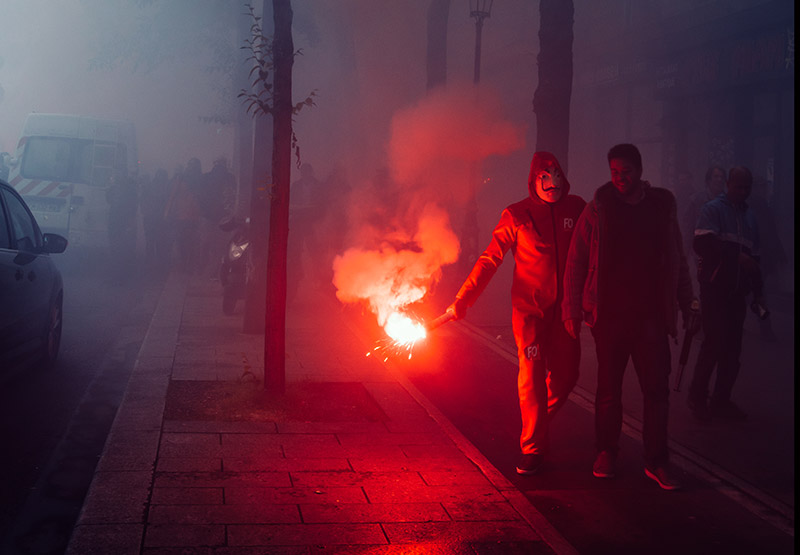Jaffa was wrong about the root of today's academic problems.
The Academy of Mediocrity

Our universities' loss of intelligent direction is a greater threat than their radicalization.
The day-to-day climate in our better colleges and universities is seldom as stifling as one imagines when television broadcasts the most recent conflagration. After all, colleges are places for the young, and youth’s energy and confidence cannot be altogether suppressed by political orthodoxy or the aging bureaucrat or professor’s trembling hand. Students mostly take the courses they take and make the friends they make. Faculty mostly teach the courses they teach and do the research they do. They talk with a few of their colleagues and blissfully ignore the rest. Administrators expand their numbers, and the mild faculty grumbling this engenders is more than offset by disinterest in how administrators actually spend their time. Trustees try to keep the ship afloat, with only episodic attention to the value of the cargo it is carrying or the port to which it is heading. Much of the enterprise is a pointless but pleasant replication of pointless but pleasant activities. The rest passes along skills, many of which a good secondary school should already have inculcated. An acceptable time is had by most.
The major problem with our universities is not the occasional outburst of assertive ignorance, but the general loss of intelligent direction. Our mediocre academic life is most of all a great lost opportunity. Too many courses are offered by too many professors, so that there is little concrete sense of what students should learn. Although faculty’s sheer numbers increase, the number of outstanding intellects truly in love with learning does not. Too much scholarship is narrow and specialized, and faculty too rarely expand their repertoire beyond variations on their uninspiring graduate school themes. This is true even in the traditional disciplines, and obviously so in areas that should at best consist of a few courses, but not constitute separate departments. The humanities and most social sciences have disordered curricula with no clear sense of scope. The natural sciences have become so specialized that they leave too little room for other courses in an undergraduate curriculum. And very few schools have troubled to consider seriously what in the sciences non-majors should learn.
It is also true, unfortunately, that years of miseducation are finally catching up with us. The university that is still primarily a lost opportunity is increasingly becoming a seminary of ignorance. Silly or dangerous academic views no longer bounce so easily off healthy young souls. Years of repetition from high school and earlier weaken natural defenses, and more and more foolishness is absorbed. The number of students who see only the errors of capitalism but not its merits, who define our country by its faults and not by the structures of liberty it has established, and who believe reason to be a weapon of privilege and not the essence of our humanity is astounding. The natural course of family and career will control or reverse some of this—but not all, because most will need to make their way in what one fears is an increasingly distorted world.
It is not that students cannot eventually come to see the intelligent side of these matters, to understand the significance of individual natural rights rather than inherited or imposed identities, or differentiate the serious, radical, yet dispassionate use of reason from trivial speech or destructive political action. The difficulty is that too few faculty are treating students with the respect they deserve. One must deal with students not as junior cogs in a research machine, manipulable political allies, emerging careerists, budding specialists, or unresponsive occupants of classroom space. One must treat them, instead, as young men and women able to delight in the play of the mind, and experience the complex beauties and riches that it can discover.
The imbalance in the faculty that Jaffa described in The Reichstag is Still Burning has become greater since he wrote. The political check on academic immoderation he discerned in Nixon and Reagan has weakened. The partisan disproportion in the professoriate has expanded. And the numbers who will stand up to excess continue to diminish. So, what is to be done? Many things are imaginable, few are possible, fewer still are achievable. This, however, is a topic for another day.
The American Mind presents a range of perspectives. Views are writers’ own and do not necessarily represent those of The Claremont Institute.
The American Mind is a publication of the Claremont Institute, a non-profit 501(c)(3) organization, dedicated to restoring the principles of the American Founding to their rightful, preeminent authority in our national life. Interested in supporting our work? Gifts to the Claremont Institute are tax-deductible.
Our universities are being transformed into institutions of professional training and certification.
Colleges today encourage students to conflate youthful arrogance with high moral purpose.
The cowardice of our faculty and administration continues unabated.
Universities will continue as they are—unless the money stops flowing.
This week's feature is based on the following essay (downloadable as a PDF) written by Professor Harry V. Jaffa in 1989, which served as his farewell address to full-time faculty status at Claremont McKenna College. It remains an illuminating and prophetic statement in response to political correctness and the decay of higher education in contemporary America. The newly published book of his writings from which it is taken can be purchased at the link below.






